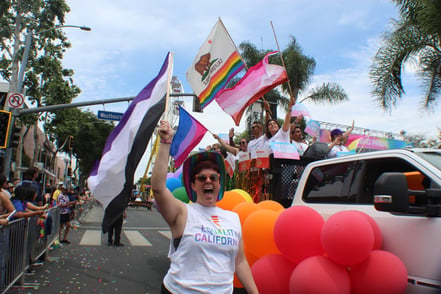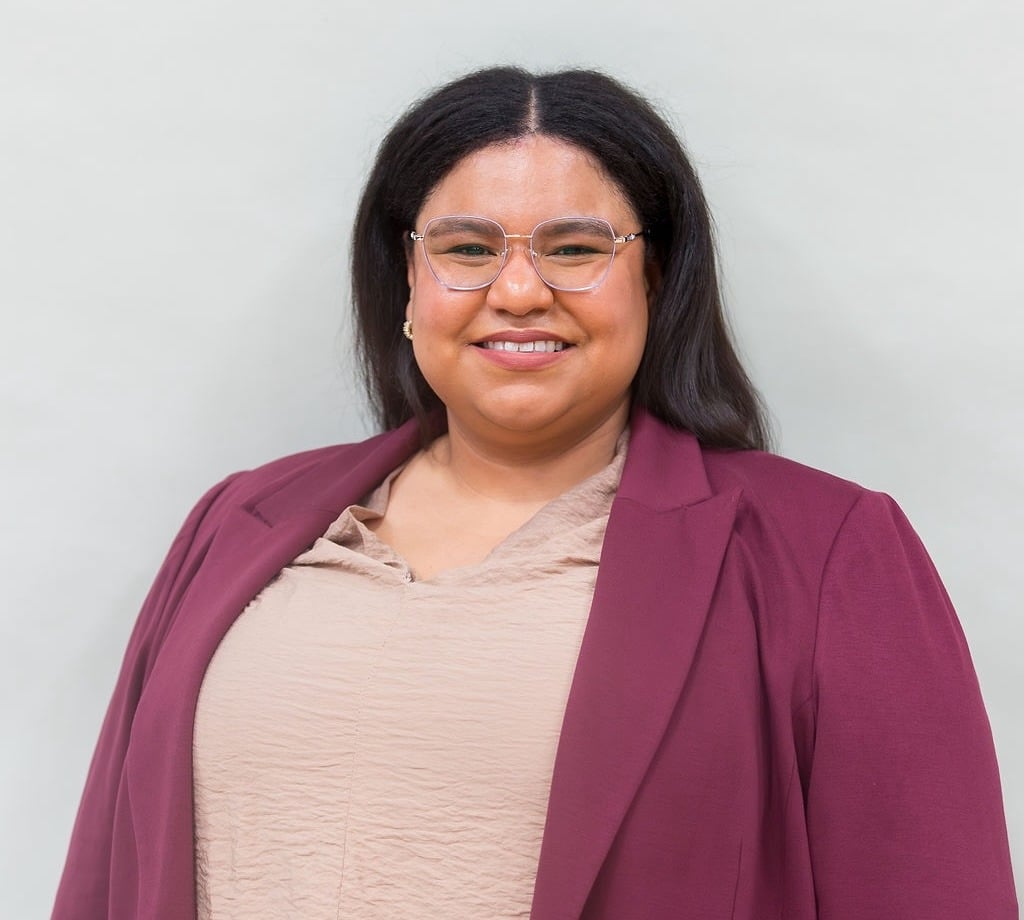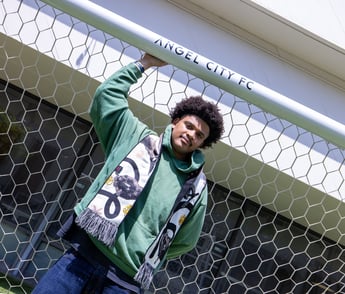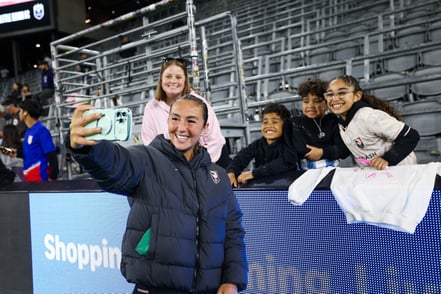

All Peoples Community Center (APCC) has been an ACFC community partner since 2022. Through the club’s 10% sponsorship model, where 10% of all sponsorship dollars are reallocated back into the community, Angel City and DoorDash help support the food programs at APCC. Read on for an interview with APCC Executive Director Brandy Muñiz.
Angel City: Tell us about how All Peoples Community Center started and what you do.
Brandy Muñiz: We started as a faith-based organization in the 40s serving our Japanese-American community. The church wanted to create a center where people who had been in internment camps [during World War II] could come back to help rebuild their lives.
We're now a private 501(c)(3), and as the community has changed—it went from a Japanese-American neighborhood to a Black neighborhood to now a mostly Latino immigrant neighborhood—we have changed with it. One of the things that makes All Peoples really unique and special is our ability to respond to the community's needs as they arise.
We have quite a few anti-poverty programs. We have many different youth programs, women's groups, a DV support group, a parenting support group, and we offer counseling for our community. We have a free food program which Angel City is a huge supporter of, and we just recently celebrated 2 million meals combined that we gave away with Angel City and the [Los Angeles] LGBT Center.
ACFC: Talk more about APCC’s food programs.
BM: Our food program is completely free. People can come once a week on Fridays and get in line to get a bag of groceries. We focus on not just ending hunger, but also trying to give quality food to our communities—so we buy fresh produce, fresh meats, whole grains, things like that—and that is in huge part thanks to Angel City and DoorDash, who help us be able to buy those sorts of food.
Prior to Covid, the need for food was pretty standard. But then once Covid happened, we saw that a lot of people began to rely on us and the need for food increased, and we're still serving that number of people today.
Our Senior Food Delivery Program also started due to the pandemic. We had our seniors who would come regularly to the center, but a lot of them stopped coming once Covid hit. We deliver food to over 300 seniors, and that’s another area Angel City and DoorDash has helped fund, and DoorDash drivers help deliver some of those packages as well.
ACFC: Tell us a little about your background and what drew you to All Peoples.
BM: I lost a dear tío of mine when I was very young to AIDS. My mom, after that loss, got involved in a nonprofit in San Diego serving people who were experiencing AIDS and HIV. And in the summers, like when I was out of school, she would take me to work with her, which I look back and kind of can't believe that they would let her do, but it was incredible. It just really opened my world and solidified for me, if I have to work, why wouldn't I work in supporting my community and giving back to causes that matter? So I just always knew I was going to end up in the nonprofit sector and giving back to the community.
I spent 11 years in Oakland. While there I spent some time working for an organization that uses an old Navy base to house people experiencing chronic homelessness. I was the development director there, and I got extensive experience, not just in fundraising or development, but also in understanding programs and helping to engage programs—social enterprises as well.
From there, I moved here to L.A. and was the executive director for an organization that ran a network of food pantries. After that I actually worked in housing again, for a large organization in the Valley. I was happy to be back in housing, but I felt like I was really missing that direct community connection.
When I saw that All Peoples was hiring and got to know about the historic work it’s been doing in serving its community, I knew it would be a great fit for me.

Muñiz with Angel City midfielder Lily Nabet and Director of Community Impact Tiffany Rubin at APCC's Thanksgiving event.
ACFC: What's the most challenging part of your role, and what’s your favorite part?
BM: I am new to the center and relatively new to Los Angeles. My predecessor, Saundra Bryant, retired after 40 years, so there's a lot of learning about the center and its history. There's so much history. Every day I'm learning something new, not just about the community and its needs, but also about the center itself. It's very important to me that I honor Sandy's legacy—I want to be sure that I am honoring hers and the center's legacy with my leadership.
The greatest part really has been the staff, who have been incredibly supportive and gracious with me as I'm learning. A large portion of our staff actually come from the center's services and programs, so they've been a guiding light to me as well.
ACFC: What’s next for All Peoples?
BM: What I've been most excited about is improving resources for our staff, especially because so many of our staff come from the community—our staff are our community. So we want to expand on our internal systems and processes so that we can improve wages, benefits, workspaces, wellness, things like that. Services are very near and dear to my heart, but if our employees are happy and well taken care of, so are our programs and services, and so is our community.





